Part 1: London’s traditional and specialist shops
10 idiosyncratic shops that you should visit
Hello and welcome to Wooden City, a newsletter about London.
If you haven’t come here via @caffs_not_cafes, I'm a writer called Isaac Rangaswami and this is my Substack.
Every other week I publish an article about everyday places in London with unusual staying power, like shops, buildings, restaurants and public spaces.
Wooden City is a reader-supported publication and paid subscribers get much more. This includes access to maps, full articles and an archive of material covering over 150 places so far.
Today’s article is free to read. A paywalled follow-up will be out on Friday with 15 more entries and a map.
For a long time, Britain has not been a nation of shopkeepers. I was born in 1991 and my earliest high street memories revolve around shopping in chains. I remember buying CDs from Woolworth’s, The Beano from WHSmith and scented gel pens from Ryman’s to take to school. As I grew older, I bought other items that shaped me, in places such as GAME, Waterstones and JD Sports.
There were traditional shops where I lived, but only a few. I’ll never forget the cool metal hitting my face as I walked through the chain-curtained entrance of O'Driscolls, the local fishmonger. The same goes for the relief I felt, as a 15-year-old, when I found out I wasn’t doing my work experience at the timber shop, Mahjacks, like another guy in my year.
As with Britain’s heritage caffs, I had assumed that this country’s cobblers, pet shops, haberdashers, ironmongers and so many other specialist shops faded away because of those chains. Landlords prefer big companies, because they assume that big means stable, and that they will be better at paying rent. Many shoppers can’t resist chains either, because they are seen to be more reliable for the customer. Chains have more of what you need, all of the time, which makes it almost impossible for the specialist to compete.
One other colossal challenge, that caffs don’t face, is the ubiquity of online shopping. Going to a specialist shop is increasingly a conscious choice, less often a functional necessity. But good shops often close because of death and retirement too. If able to buy their freehold before the latter, shopkeepers may choose to sell up to bolster their pension. They may not pass the family business on for other reasons, such as wanting their children to do something else, or because they have no kids at all. Still, in a city as diverse as London, there are exceptions to these rules.
I recently set myself the challenge of finding 25 specialist shops, five in each part of the city. As always, I have skewed towards older, family-run spots. This is because they’re more important now that the overall number of specialist shops has dwindled, with so few having been replaced by newer openings.
But this is not to say that these shops are museum pieces. They are functional places, that pay business rates and gas bills, and make money by selling stuff as much as they might dispense advice for free. They are also very personal, with customers who trust them and keep coming back. And they are run by people who are enthusiastic about the history of their shops, and keen to talk to those who will listen.
This first part of the guide covers 10 shops and is free to read. A paywalled follow-up on Friday will include 15 more, along with a map. To give myself some constraints, I’ve majored less on food and drink-related shops here, mainly because I plan to write a whole list of those separately. Still, I couldn’t help but include a couple.
As with my longer caffs, bookshops and indoor public spaces guides, this list doesn’t claim to be definitive. It is highly subjective, because it focuses on my favourites. I love it when people recommend me places, so if you think I’ve missed somewhere, please let me know. At some point, I may write a crowd-sourced part three.
Central London
James Smith & Sons
I once saw a man standing outside James Smith & Sons holding two walking sticks. He was waving to someone in the distance. One stick looked standard issue, with a PVC handle and an aluminium body; the other was fancier, maybe made of polished wood. A woman arrived, and they greeted each other with an emotional hug. It looked like they were celebrating the purchase of his more characterful stick.
Seeing this made me decide that if I ever need a walking aid, I will buy a stick with personality. For now though, I’ve only bought an umbrella from James Smith & Sons. You can find other handmade, functional items in this shop too, such as porridge spoons and collar stiffeners made of bone. It is here that I learned that shoe horns are named as such because they were originally made from animal horns.
James Smith & Sons is so old that Charles Dickens could feasibly have passed through its copper-plated doorway, or at least walked past. But this place persists because its products are good and people still buy them, with the help of its staff. When you purchase an umbrella, they show you how to dry it, roll it up and neaten out the pleats.
Hazelwood House, 53 New Oxford St, London WC1A 1BL
L. Cornelissen & Son
A couple of Christmases ago, I was looking for something to buy for my mum, who paints. I soon found myself at L. Cornelissen & Son, a famous 169-year-old art supplies shop just off Tottenham Court Road, where I bought her some brushes and a leather brush case. I have returned since, because it is such an atmospheric place.
I like this shop because of its innumerable shelves and drawers, which are all neatly stocked. There are specialist items I recognise, such as paint, varnish, linseed oil and etching materials. But there are also things that are new to me, such as Bhutanese artist’s paper and oak galls, which I now know are used to make ink.
Like Scotti’s Snack Bar, L. Cornelissen & Son is furnished with evidence that people have worked here for ages. Its latest cohort of employees aren’t just very knowledgeable; they also take pride in where they work. Last time I was there, I opened the front door to someone polishing the handle on the other side.
105 Great Russell St, London WC1B 3RY
East London
Bradburys
Google says Bradburys is a hardware shop, or an ironmonger, but it really sells everything. It majors on stuff like tools, cookware and kitchenware, as well as other bits and bobs anyone might need. If you’re looking to kill ants, mice and moths, it has loads of options, and the same goes for feeding a cat, basting a chicken, grouting kitchen tiles, growing broad beans from seed and a million other things. As I paid for my lint roller, the shop’s affable south Asian proprietor told me he’s had the place for 37 years. He said his rent was £14 a week when he first took over, a price that he paid well into the 1990s.
81-83 Broadway Market, London E8 4PH
Ümit & Son
There are people – which some might call hoarders – who love something so much that they surround themselves with it. For Ümit Mesut, that something is film. Outside his 40-year-old business is a velvet rope; inside there are records, Kurdish cassettes and VHS copies of Shrek. But Ümit & Son is mostly given over to his vast collection of celluloid film, one of the few places in London with capabilities to project it. “When we say film, we mean film,” Ümit told me.
Ümit also showed me the 17-seater screening room in the back, which you can rent out. It has 100-year-old seats from a cinema in Blackburn, which he encouraged me to test, and they made me think that the comfort of cinema seats has decreased drastically. As I bought something, Ümit told me proudly that Kate Moss, Michael Caine and Michael Winner had been through his doors. He also gave me his website details on a slice of receipt paper using a personalised ink stamp.
35 Lower Clapton Rd, Lower Clapton, London E5 0NS
West London
The Lacquer Chest
The Lacquer Chest is comparable in scale, drama and sheer extraordinariness to Sir John Soane's Museum. It treats the rooms of its multistorey Kensington townhouse like walk-in cupboards, overstuffed with thousands of rare and beautiful period objects. Every shelf holds hats, books, bowls, linen, glasses, crockery, pottery, candlesticks; far too many things to name.
When I visited, one of its present proprietors, the very friendly Ewan Ramsay-Wilson, proudly showed me a bulbous 18th century French Guianese bottle, mudlarked from a tidal river. There is a landing devoted exclusively to historical needlework samplers, their embroidered details browning with age. If you were a celebrity such as Paul McCartney, you might furnish your sitting room with such items. If you were a production designer, you might hire them for the next Victorian drama you’re working on.
But what makes The Lacquer Chest’s collection truly special is that it embodies the taste of its long-time curator. For most of the place’s life, this was the late Gretchen Andersen, who took over her mother-in-law's shop in 1957. These days it’s run by Nancy Anderson and Ewan, the latter of whom gave me tea and fruitcake and kindly showed me around. “It didn’t matter if it wasn’t in fashion,” Ewan told me. “Gretchen bought what she liked.”
75 Kensington Church St, London W8 4BG
Ellis's Pet Store
Ellis's Pet Store has everything you could want from a shopfront: striking lettering, a hand-painted tortoise, an obsolete landline number. All of these suggested to me that it might have opened in the 90s, so I was astounded when the friendly lady behind the counter told me it has been here since 1934. It must be one of the oldest continuously running units in Shepherd’s Bush Market, and might be the oldest pet shop in London
Ellis reminds you people have been keeping domesticated animals for a long time, as well as buying stuff for them. Here that means goldfish, budgies and rabbits, as well as food for those animals as well as cats and dogs. It has that classic pet shop smell – fishy and farm-like – that I didn’t realise was so deeply etched in my brain.
11 East Side, Shepherd's Bush Market, London W12 8DG
North London
Camden Coffee Shop
In 2017, I worked briefly at a PR agency just off Camden High Street, doing a job that I didn’t enjoy. My precious lunch breaks often involved a walk to Ferreira Delicatessen, a Portuguese sandwich place over the road. I’d always pass Camden Coffee Shop on my way, struck by its signage, the grandfatherly man working inside and the smoky smell that spilled out of his doorway.
When I saw that it was “temporarily closed”, I dreaded the worst, but then I noticed an announcement on its unusually well-maintained Google Business profile. It said a critical part of its 110 year-old coffee roaster had worn through, so it was closed until they could get a new part. The Questions & Answers section seemed active, so I asked when the shop was back open. A response soon appeared saying the shop would reopen in a few days.
Then I went, and there was that same sign, that same elderly man and that same unforgettable coffee smell. The proprietor, George Constantinou, explained the options and I went for the “mountain blend”. He told me that Camden Coffee Shop has been open since 1947; he’s been here since 1978. He handed me my coffee in a shiny packet fastened with cellotape, the blend’s name written on it in biro. It cost £15, and George told me it would cost much more somewhere else because he hasn’t changed his prices in seven years.
11 Delancey St, London NW1 7NL
Get Stuffed
Like Nunhead Lane, Essex Road has managed to sustain a traditional butcher, a baker and a fishmonger. Unlike Nunhead Lane, a shop on this Islington street prepares, stuffs and mounts animal skins to lifelike effect. This taxidermist is open by appointment only, so I booked one. I showed up at the allotted time, before the guy I’d emailed, Robert, opened up. He took me into a carpeted room with a desk, which would be a normal study if it wasn’t so crowded with heads and bodies. I noticed a towering bear, a zebra and a mounted iguana.
Robert told me his family have been trading from their current premises for 43 years, but had been in the taxidermy business for over a century. He said there are few other businesses like theirs in London, and everything here was made in their workshop. Despite the fact I was clearly not going to buy anything – prices start at around £200 and run into the thousands – Robert was very patient with my questions. He even explained the process of taxidermy to me, which is remarkable when you realise it is designed to make a decaying body last forever.
105 Essex Rd, London N1 2SL
South London
Classic Trophies
I have Jonathan Nunn to thank for making me aware of Classic Trophies, which may be the most idiosyncratic shop on this list. You could call it a trophy shop, because that’s what it sells, but it is also a living room in Sydenham. Upon entry, you will immediately find yourself chatting with Wendy and Alan, the exuberant wife and husband duo who joke around in office chairs behind the counter. Last time I was there, Alan was wearing a Hawaiian shirt and playfully bothering his wife with the pinching end of a litter picking tool.
Wendy told me that many decades ago, the building was a butcher's shop. Its ornate remnants are quite visible, including a mirror-like signboard and a hare etched into the glass that surrounds it. In one lower cupboard, Wendy showed me the marble they used to store the meat before fridges existed. Later, it became a nanny agency, which Wendy was offered to buy in 1981 for a very reasonable price. It has been a trophy shop since 1989, and supplies schools, football clubs and golf societies with cups, plinths and shields.
323 Kirkdale, London SE26 4QB
Parris Cues
“John Parris does not really need any recommendations from the professionals,” snooker legend Steve Davis says on Parris Cues’ website. “One just has to look at the number of top players who use a Parris cue.” But this renowned cuemaker has a two-year waiting list for other reasons too. A perfect shaft takes months to make, its carefully selected ash and maple components tapered gradually and left for long periods in between, to ensure stability.
Parris Cues has had a shop in Forest Hill for 35 years, but its owner has been in the game for longer than that. When I visited its showroom, where you can buy off-the-shelf cues, some people were playing pool. A friendly member of staff greeted me, before telling me about the shop. He said it used to open more regularly pre-Covid, until its craftspeople discovered they got more done in the workshop when it was closed. So now the showroom is only open for a few hours on Saturdays, for those desperate for readymade cues. Even if it isn’t open, I’d recommend walking past to see the two stunning acrylic signs outside.
5 Church Vale, London SE23 2UW
Thanks for reading! Part two will be out on Friday, with 15 more shops and a map.
Wooden City is written by Isaac Rangaswami, with editing from James Hansen.

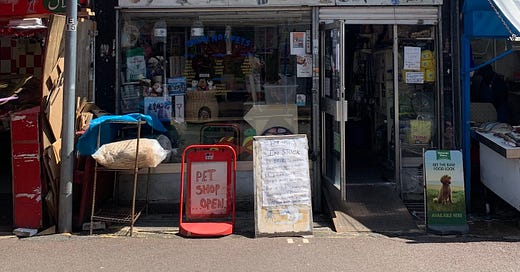

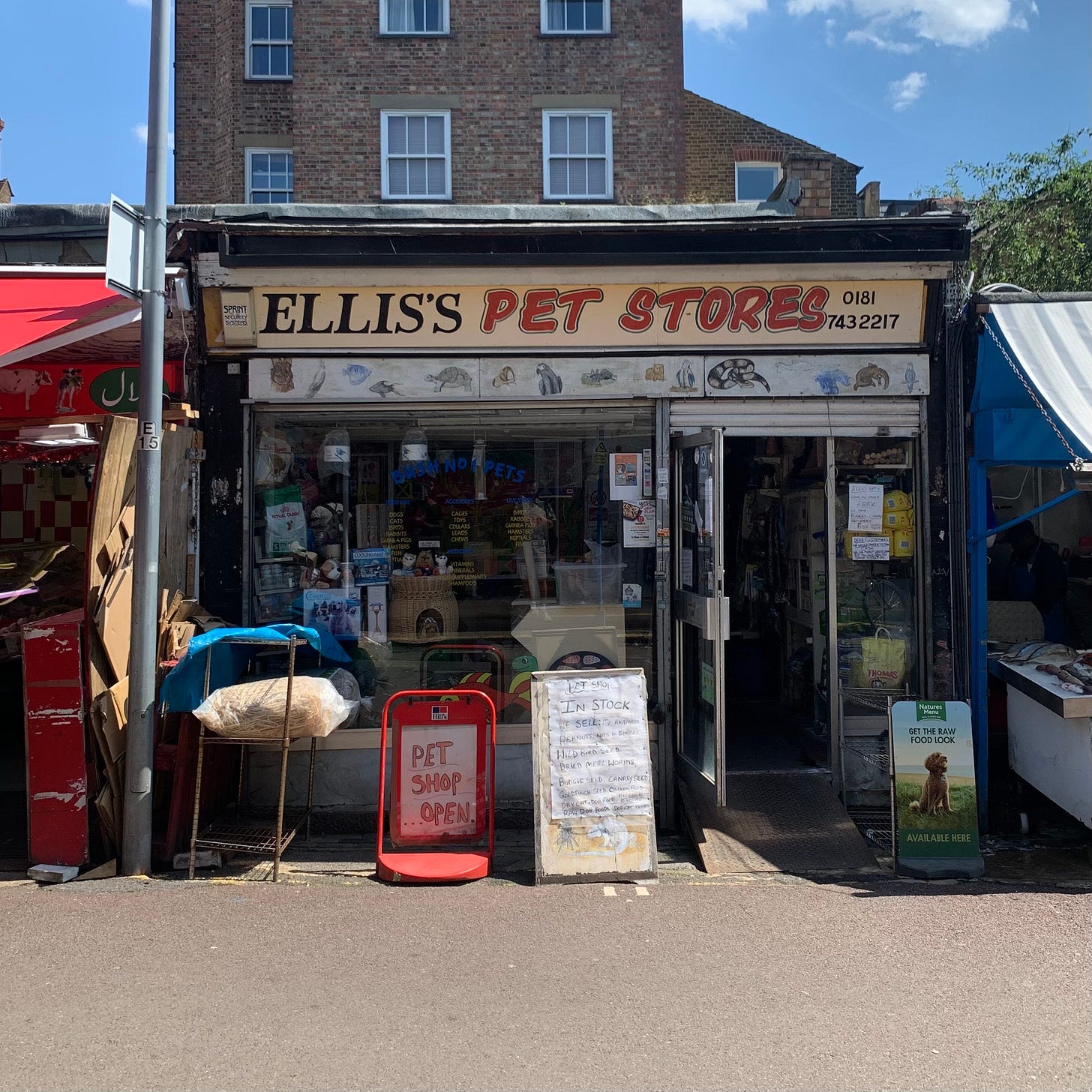
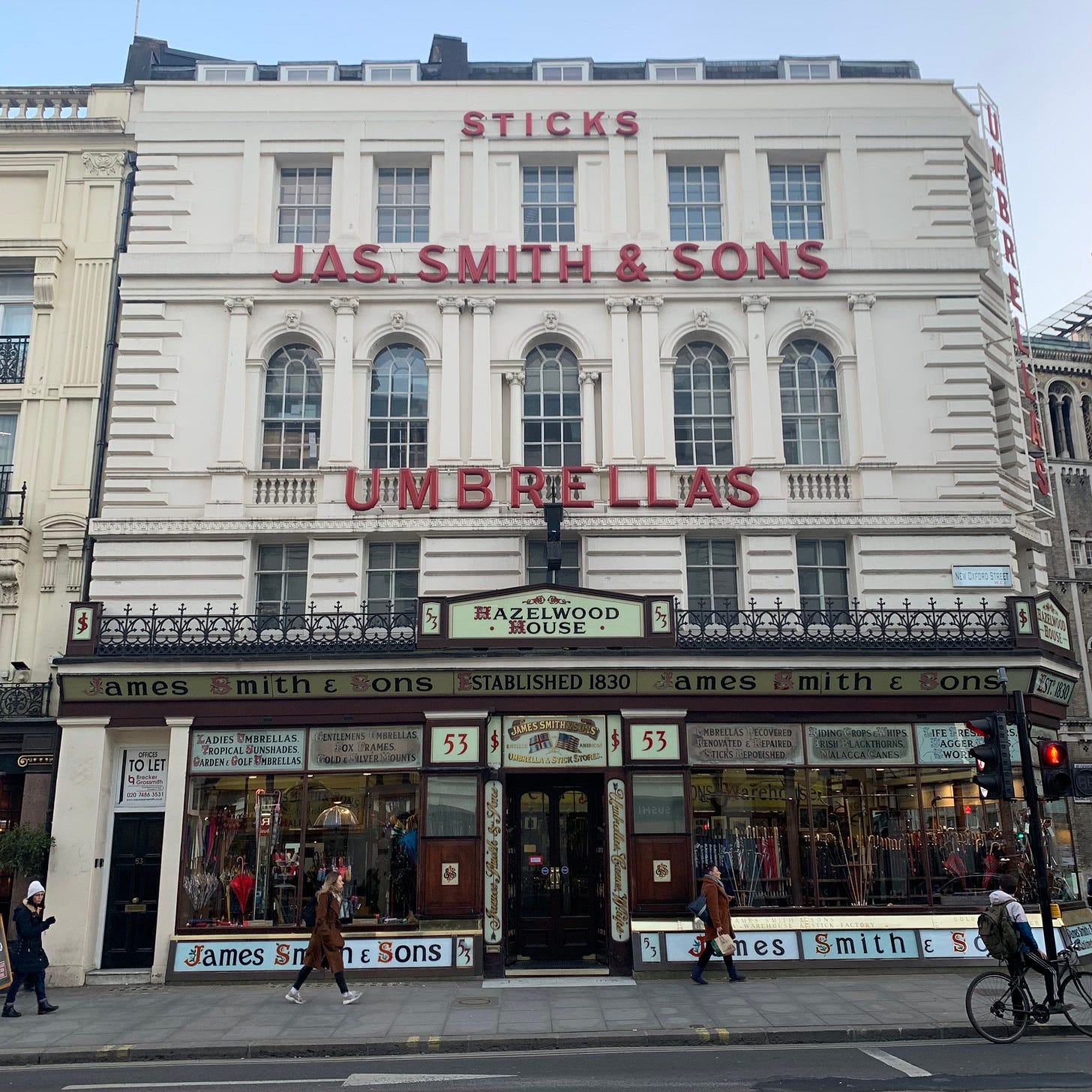
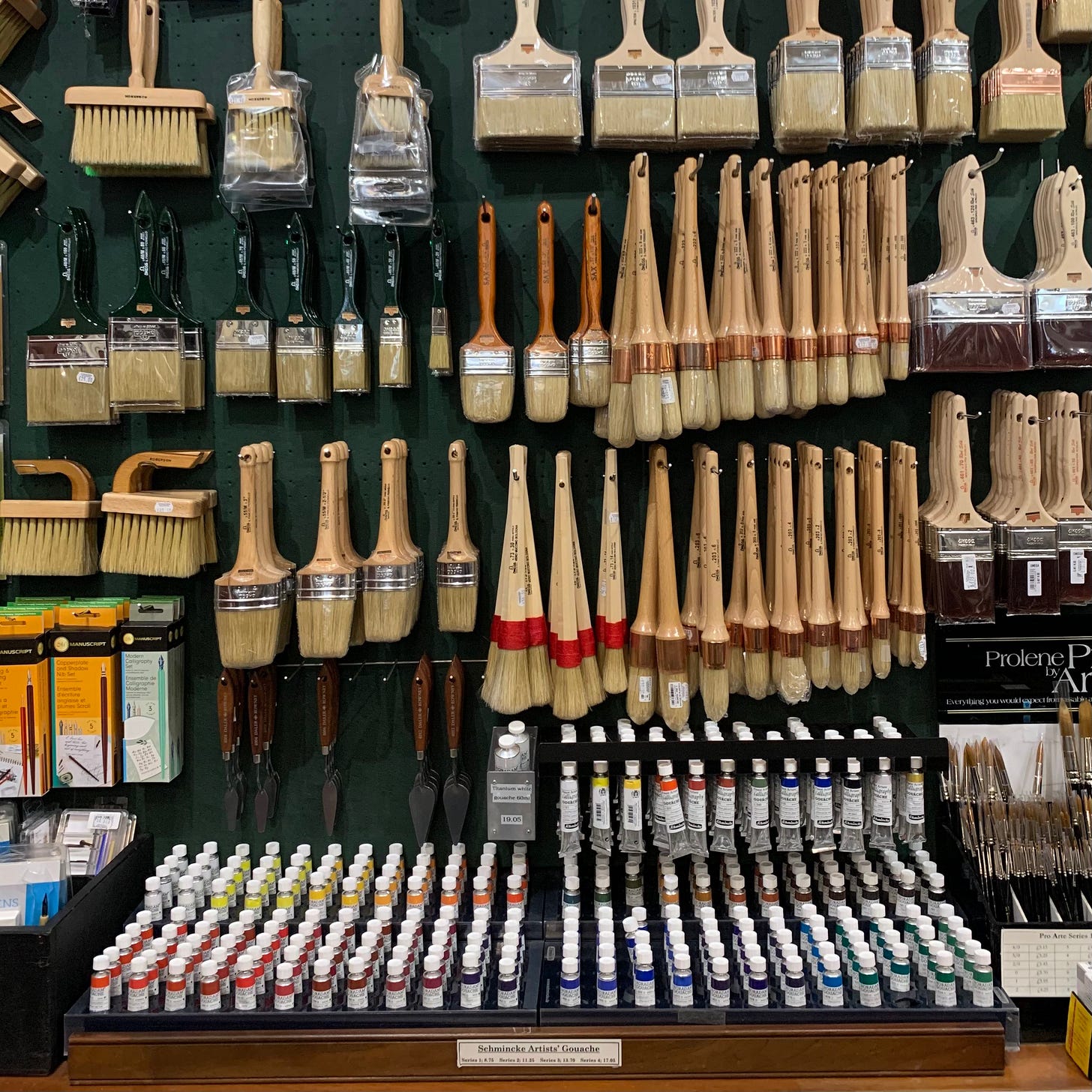
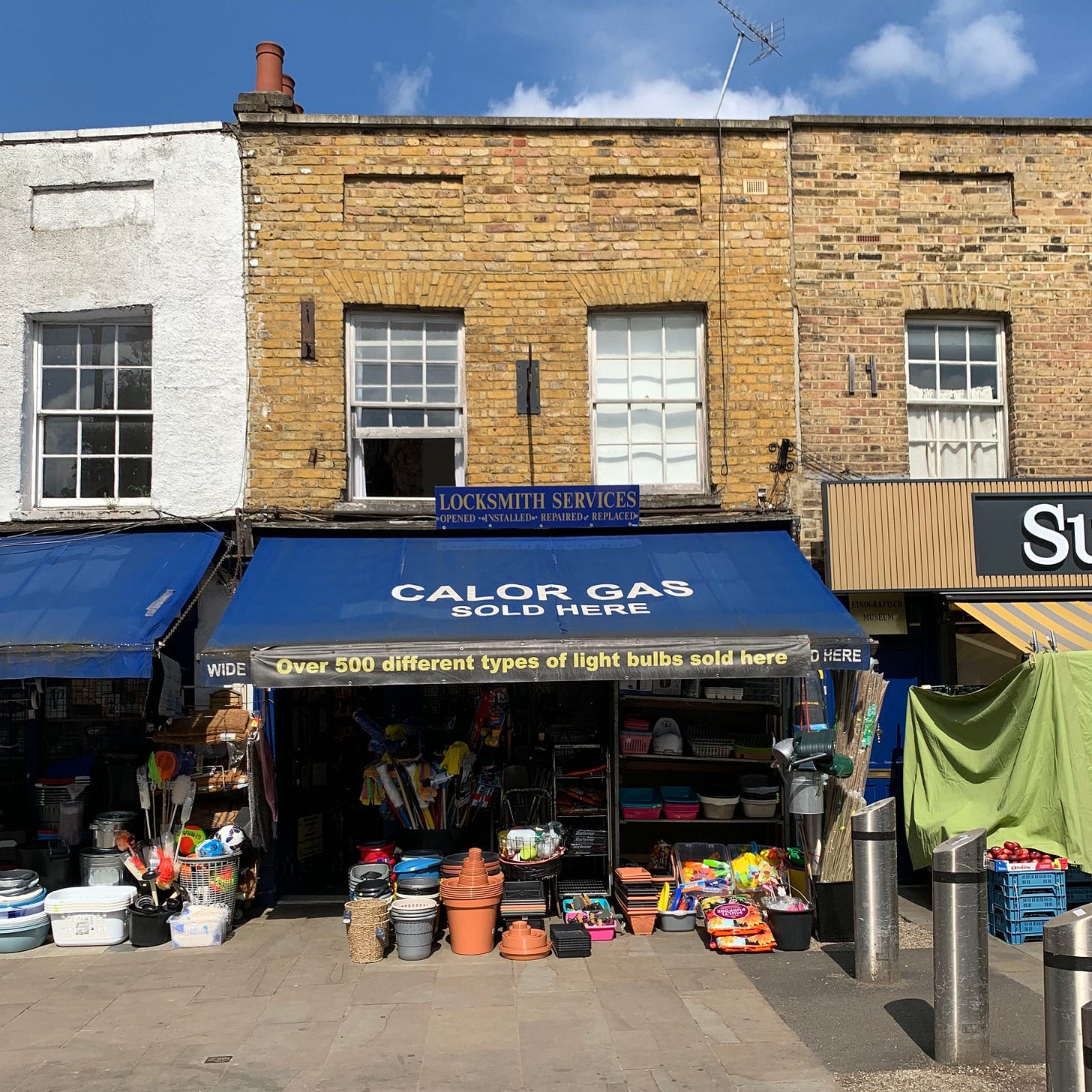
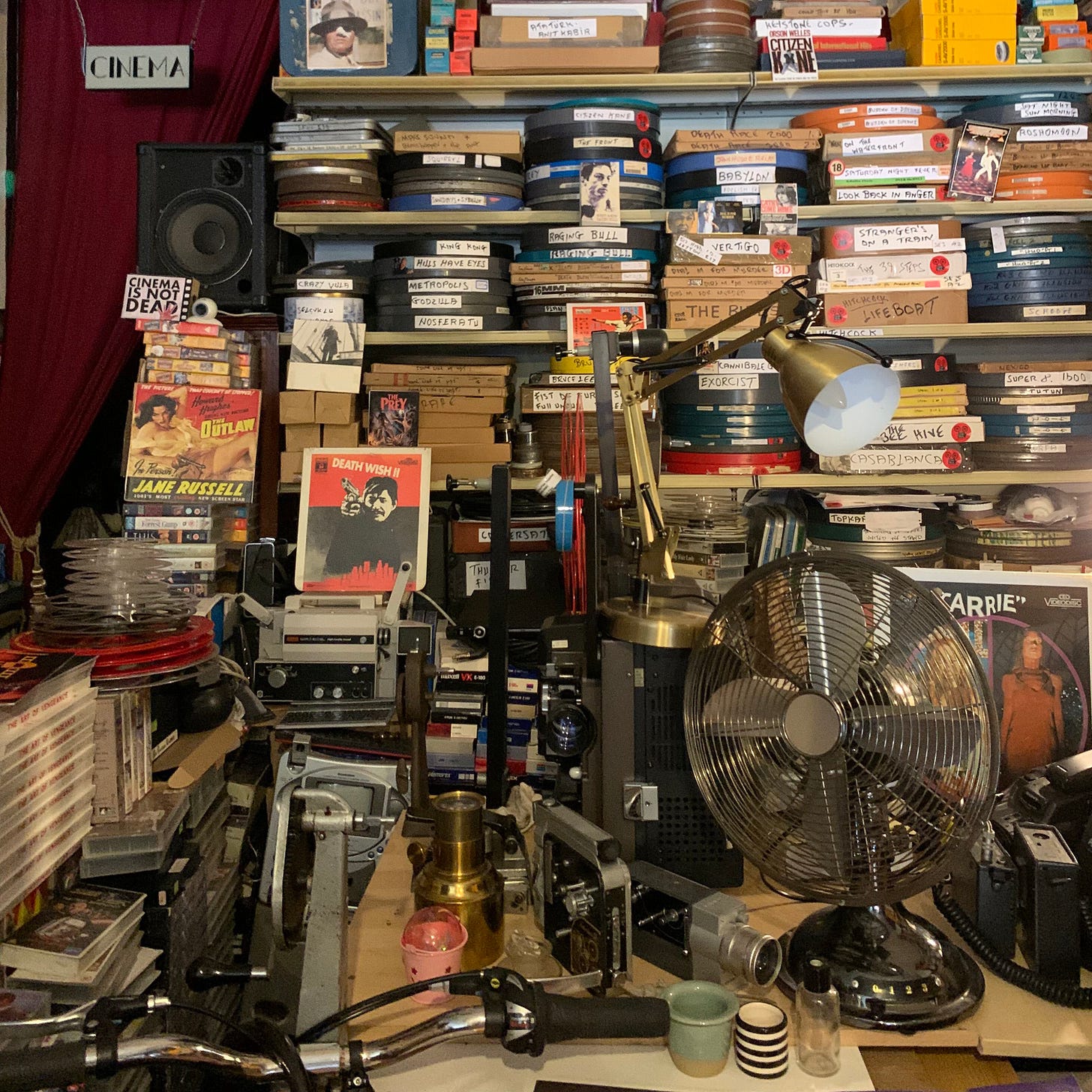

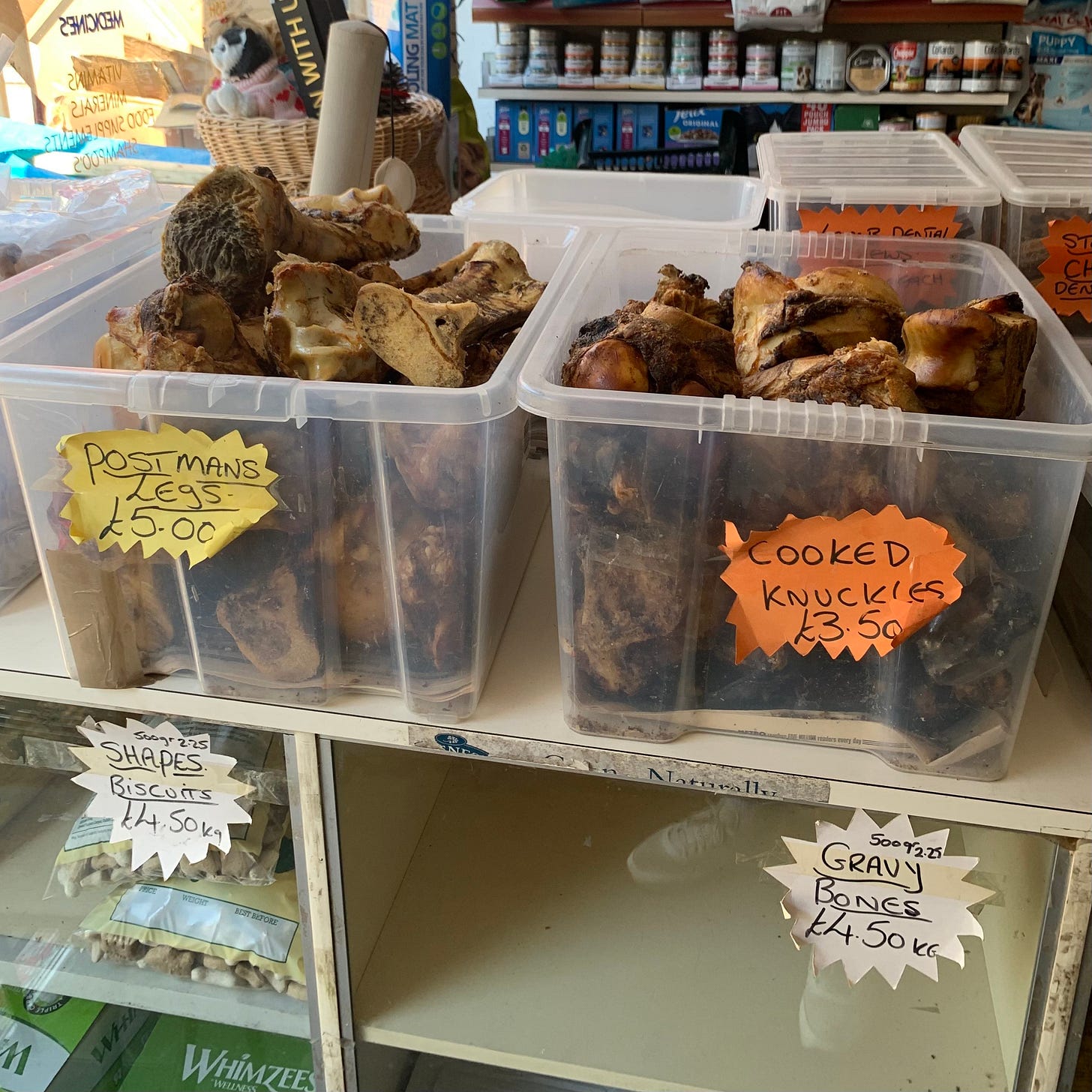
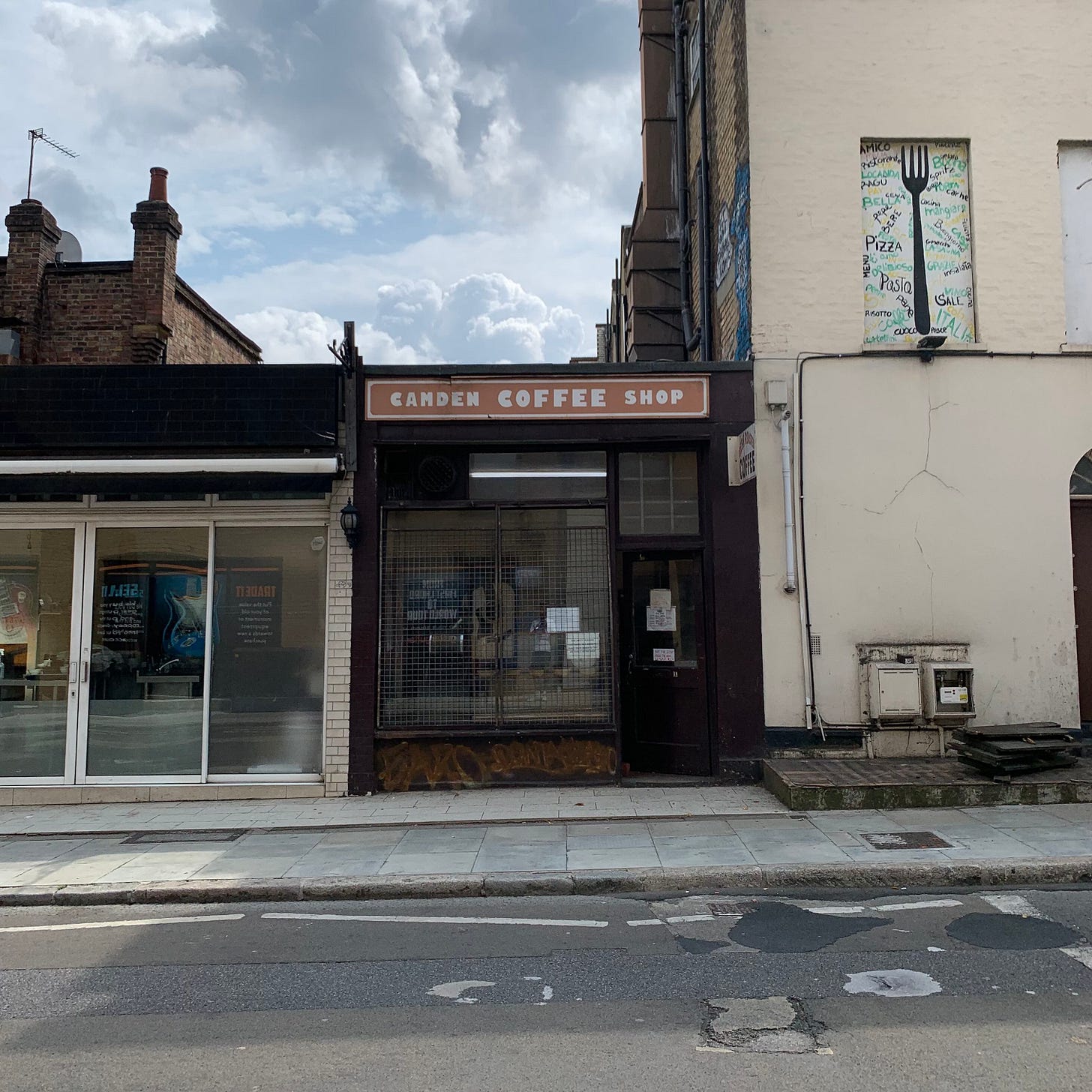
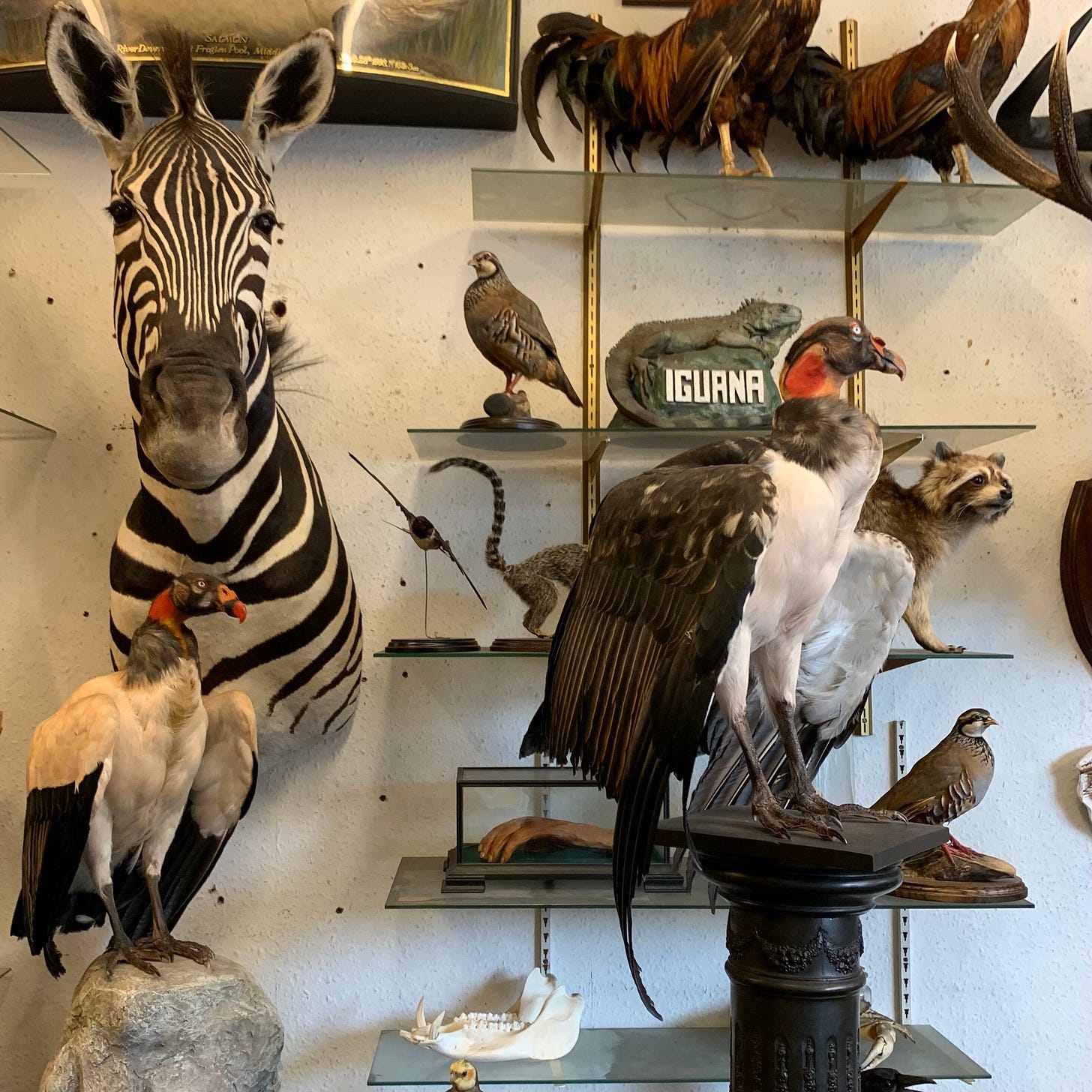
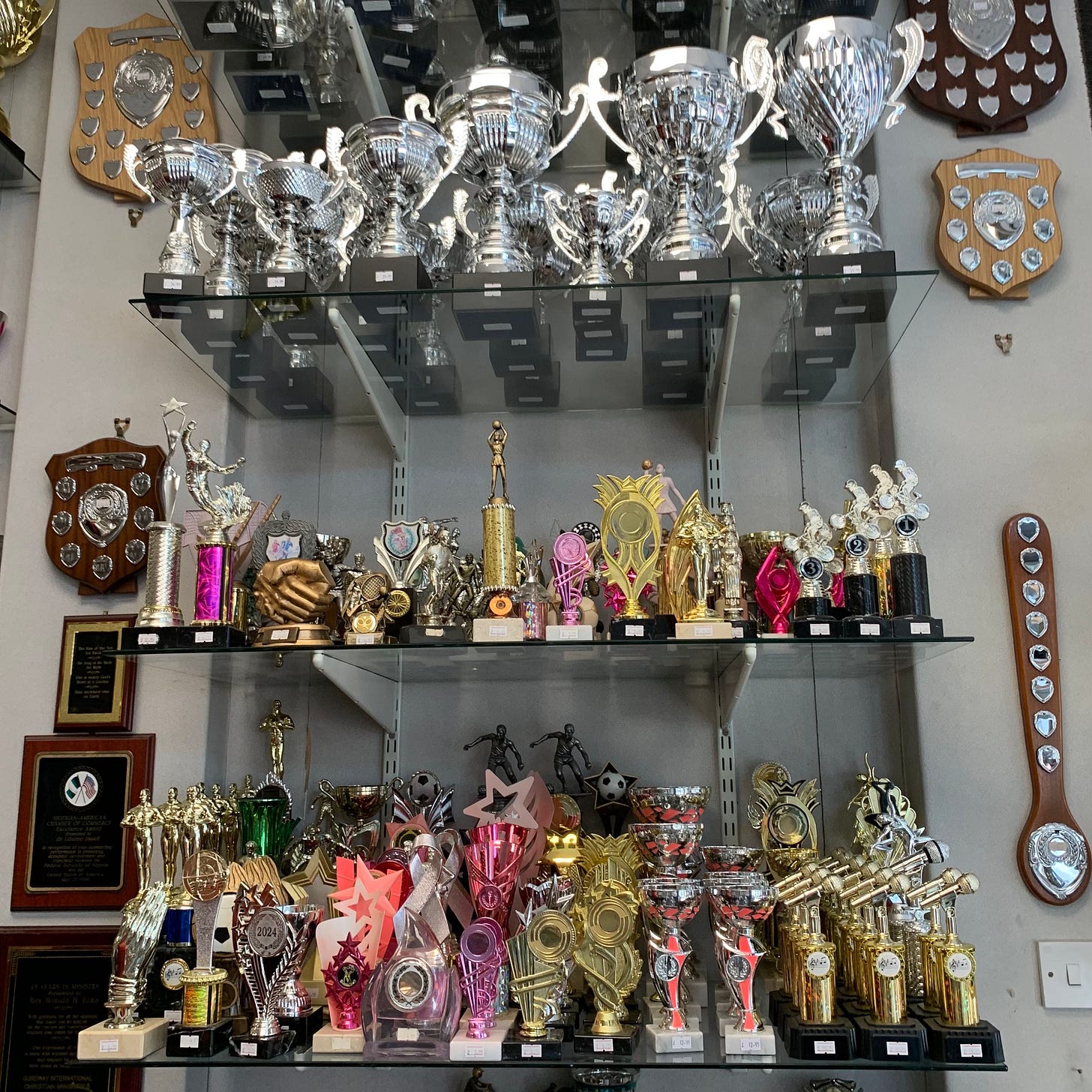
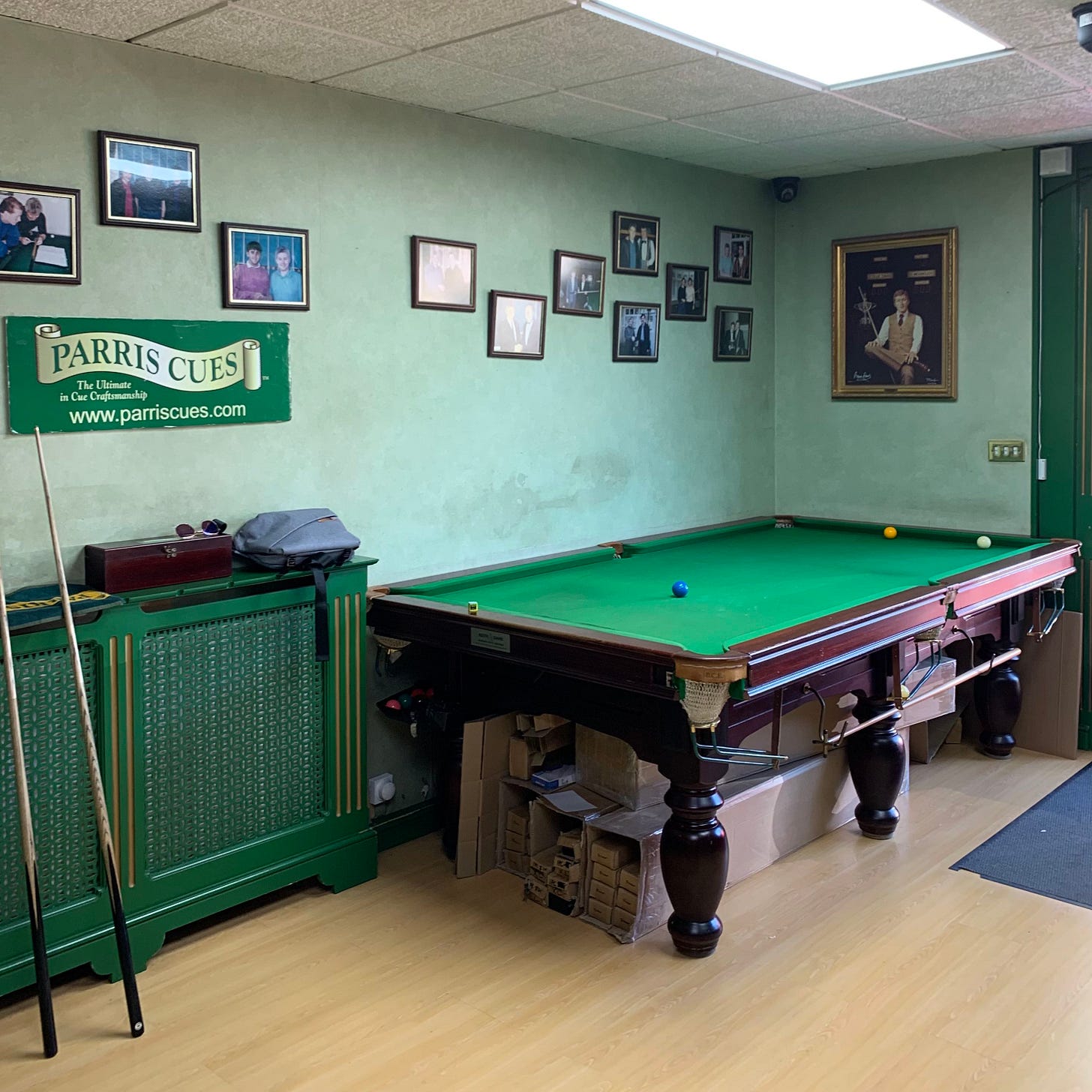
This is a fascinating read especially as someone who comes from a shopkeeping background. Love the sound of the celluloid place esp as I worked for BFI before becoming a journalist. When my Lithuanian Jewish family first arrived in Bethnal Green in early 1900s they opened shops. My great grandfather went on to open Leading Lighting & Record Store (gas lights and cylinders) in Chapel Market. My Dad continued running it as a record store well into 1970s when advent of Our Price forced him out of business . He then set up a specialist model railway shop on Pentonville Road Victors importing trains from Japan & US mostly for grown up enthusiasts including Royals & rock stars. He ran this until he retired and now devotes himself to jazz clubs.
Great read! Classic Trophies shines at night too - when closing they turn on a multicolour LED disco ball that lights up the store behind the shutters, it's fantastic!